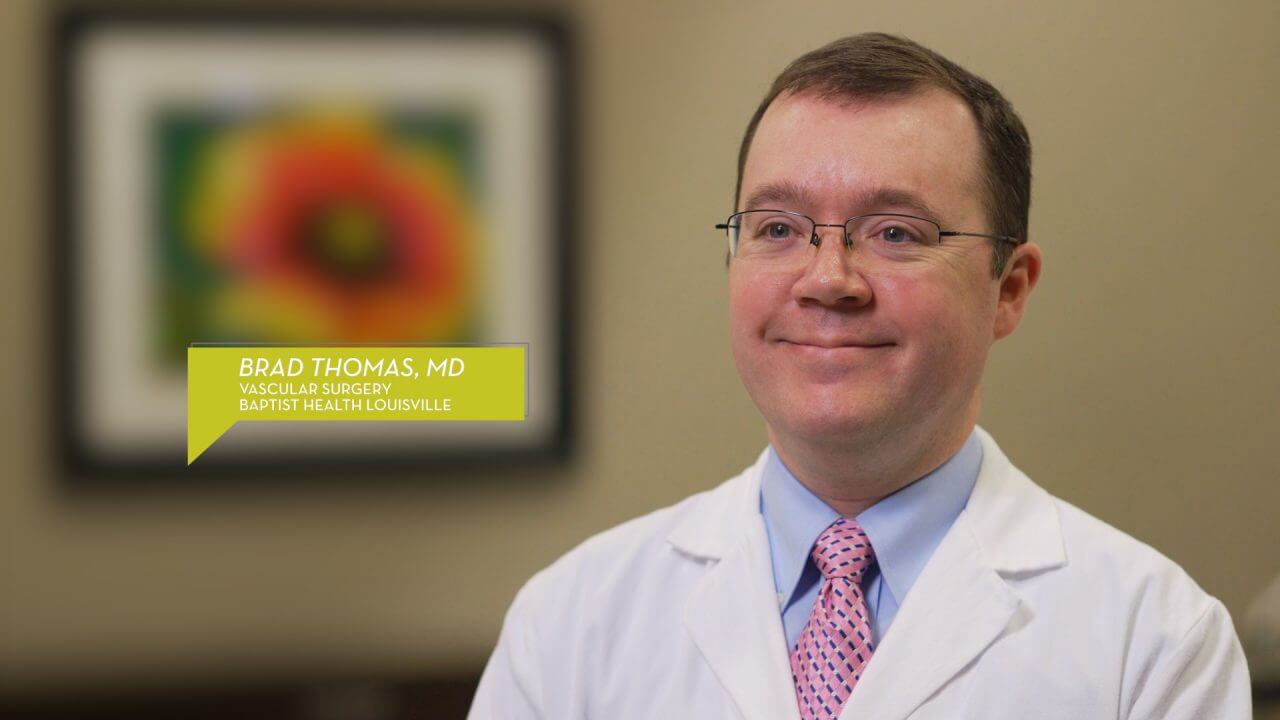Atrial Fibrillation Management in Louisville
Baptist Health Louisville: Atrial Fibrillation Management
Management of chronic atrial fibrillation is key to a healthy and happy heart. Learn more about how Baptist Health Louisville helps you medically manage your atrial fibrillation.
Atrial Fibrillation Management HealthTalks Transcript
Kevin Parrott, MD
Atrial fibrillation is an abnormal heart rhythm in which the top chambers of the heart, the electrical activity in them becomes disorganized, and they don’t pump blood effectively to the lower chambers.
Atrial fibrillation can be diagnosed usually through an EKG. It’s a quick test just where a few leads are placed on your chest, no pain involved, and a heart rhythm strip is done. There are a lot of different options for treating atrial fibrillation. Some people may have few symptoms if their rate’s controlled, and in those patients, just a rate-controlling medication may be appropriate.
The most important issue in the treatment of atrial fibrillation is a reduction in the risk of stroke, so we would assess your risk for having a stroke and treat you, if appropriate, with a blood thinner. If medications aren’t effective, we can treat with an ablation procedure.
Ablation for atrial fibrillation involves putting catheters in the heart to study the electrical activation, determining where the atrial fibrillation is coming from, and then doing ablation in that area to reduce your atrial fibrillation burden.
The biggest thing you can do to reduce your chance of developing atrial fibrillation is to manage any other health conditions you may have, such as hypertension or diabetes. Controlling your weight can help. Stopping smoking can reduce your chance of AFib. A healthy diet can reduce your chance of atrial fibrillation as well.
Most people diagnosed with atrial fibrillation go on to lead full normal and healthy lives.
Have you assessed your heart health? Compare your actual age to your heart’s biological age and estimate your risk of developing cardiovascular disease. This is a great first step to prioritize your most harmful cardiovascular risk factors and start a discussion with your doctor.



